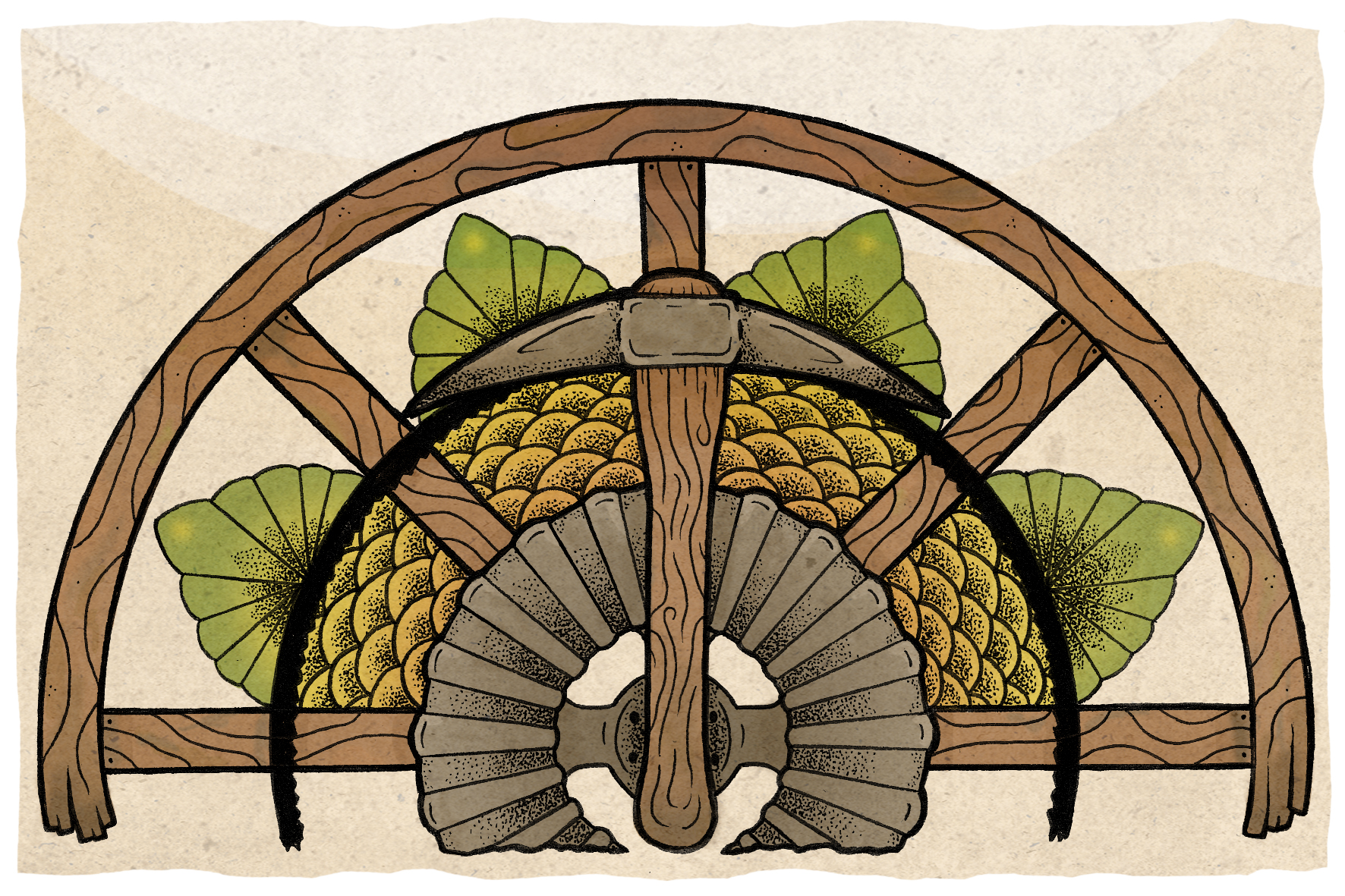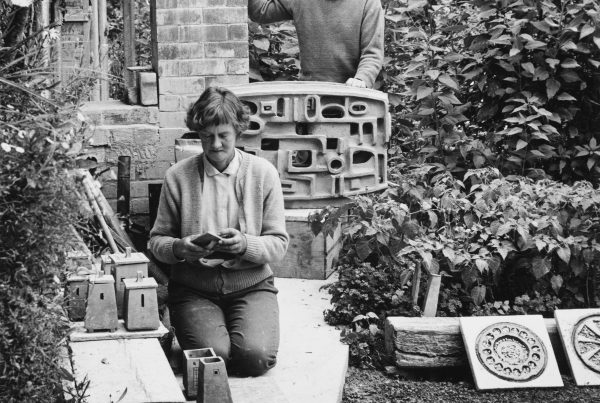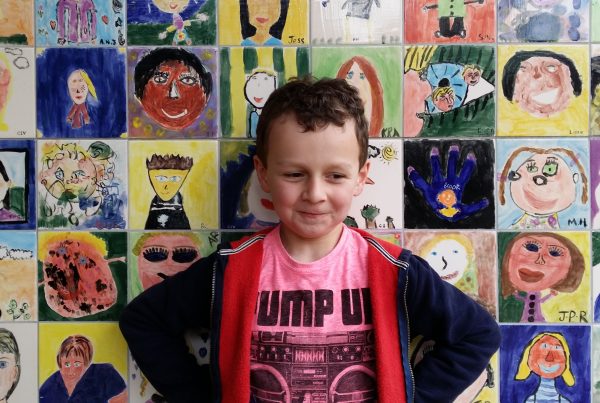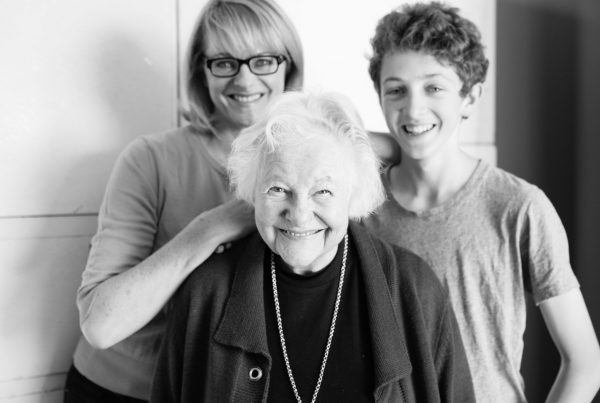Pip Adam
‘From Ryugyong Hotel’
Catherine enjoyed the pace of the work in Korea. Everything happened in front of her. She spent days walking round the drawing boards, looking at the plans that were being drawn up, and soon she found herself testing most things on paper with a pencil. Usually, the computer stayed turned off. She mainly worked. Her guide would wait with her while she worked into the night. He would read or just sit and look out the window of the office. Sometimes she would need him to translate something and he was always quick and correct. The kitchen at her hotel packed small dinners for her which were left in her room by the women who changed the bottled water in her refrigerator early each morning. Her guide also had a packed dinner and they would sit and eat together. Sometimes he would read her articles from the newspaper. Sometimes he would sing along with the radio, it was on all the time. Sometimes they would just sit, not talking and eat.
They delivered the first set of construction papers on a Thursday, and Nazif gave a short speech to the small group and their guides and interpreters. A representative from the Ministry of Construction and Building Materials Industry gave a speech explaining that they were pleased. Nazif asked Catherine to come to his office, after the celebrations, when everyone had gone home.
Nazif’s office had small windows that looked out on the bright and dry Korean winter. When Catherine arrived he called her over to a corner and stood her in front of him. He got her to crouch down slightly, then look up. The top of Ryugyong poked weakly above the roof of the building which was butted against theirs. They could have opened the window and touched it.
“On Monday we start a new project,” he said.
Catherine looked at the tiny poke of the ugliest building – at the crane on top of it.
“Would you like to stay and start another project?” Nazif asked.
“On Ryugyong?” Catherine asked.
“Perhaps,” Nazif said.
“I’m happy to work on anything,” she said. “You decide where I would be most use.”
“Good,” said Nazif. So together they began to build Ryugyong again. It came to life in their hands, in the hands of the people they employed. It would still be useless but it would shine, come home, like a holy mountain after centuries of hiding. She received a letter inviting her back to Wellington for the opening of part of the CBD.
“If you go to Wellington,” her guide explained, “you’ll need visas. Shall I get you the appropriate forms?”
It was a long flight, she said. She looked out at Ryugyong, watched the light clip the new cladding, as if the building were a space shuttle re-entering the Earth’s atmosphere. She was living in the future now. No, she replied politely, she wouldn’t go to Wellington. Wellington would have to wait, she thought, for her and for Ryugyong.
Excerpt from I’m Working on a Building by Pip Adam, published by Victoria University Press (2013)
Amy Head
‘The Sinner’

A stand of kowhai spilled over the flat, blinking yellow, ruffled by the wind. Wood pigeons filled the low boughs like baubles. Sam Lord slid his rifle from his swag. “Keep still until I go,” he said.
They descended into the Little Grey Valley from the north. Duncan’s skin felt infused with a residual heat, but the temperature was falling away. Birdcalls – fluid piping, squeaking, and kissing – lacquered the treetops.
Kamahi Camp was deserted. They crossed the flattened grass, kicking mounds of ash and middens. They saw only one man. The fire outside his tent sputtered scraps of smoke. As Duncan watched he crawled out, stabbed at the embers, threw another stick on, then crawled backwards and flopped down again, his head and shoulders still outdoors.
The few buildings clustered on Kamahi Flat, where Old Man’s Creek met the Little Grey, didn’t have a name yet. Gordon’s, they were calling them, after the first publican to build there. His saloon resembled a railway platform and station house. Boot soles clobbered the planks of the veranda. Duncan sat sucking from a glass of sarsaparilla on a bench against a wall, looking into a stand of slouch hats and beards, moleskins and serge. The Grey River Argus was to blame, so they said – publishing spittle from a drunkard’s lips. Variations on the story accumulated along with the new arrivals, new details and theories thrown in. A veteran prospector had put the news out during a drinking spree at Twelve Mile. Accounts of what he shouted at the bar and what he promised in the creeks ranged widely. A case of Champagne, some said. A whisky fountain, said others. Nuggets like knuckles. The creeks had duffered out in six days – a handful of parties were making change from tucker, but they wouldn’t support more. The diggers mourned the claims they’d left behind, channels they’d cut that would already have collapsed, sluices too large to transport.
Somebody had walked away from a sweet deal: tucker and three pounds per week working a coal seam.
Somebody had a girl waiting in Dunedin.
One man hadn’t eaten anything but potatoes for five days.
One man said he could slice the lips off the lying clown’s face. He’d have another drink, and he’d go downriver and lift him up by his neck.
He had all the coal he could burn and a hut.
He boiled them and ate them green and all. His guts were scoured dry.
Grace. Her name crossed the air between them like an imported scent.
Excerpt from Tough by Amy Head, published by Victoria University Press (2013)
Ashleigh Young
‘Moustache guy’

I always know when he’s approaching because he is never not making a noise. Sometimes he’ll be talking to himself. As I waited next to him at a pedestrian crossing on Willis Street once, he was shouting, “I don’t want to… DIE. I don’t want to… DIE.” When the lights changed he ran across the road, his backpack bouncing: “Heeeeey! Heeeeeey!” Yesterday I passed him while out running – I heard him coming around the corner, long before I saw him – and he said, meditatively, as I passed, “Aaah, she’s running, she’s running –” like a horse-racing commentator, then resumed his monologue of beeps, guffaws, heeeeys and robot noises. Sometimes he sounds like Ernie, sometimes Bert. His most frequent noise is a sort of half-shout, half-laugh. Remember Geoffrey Rush as David Helfgott in Shine? There’s that really brief scene where David is the passenger in a car and he’s leaning out the window shouting excitedly as the car speeds by. Moustache guy sounds a little bit like that. He is his own speeding car.
A friend of mine was at a noodle canteen for lunch recently, and the guy was there. He had his plate piled high with food, and was standing up to eat it with his hands. Food was all over the table, all over the floor, all over his face and in his moustache, and the guy was making noises and having a great time with this food. The man behind the counter didn’t know what to do. He pointed at the guy. “Sit down,” he shouted. The guy sat down for a few seconds. But he couldn’t contain himself – he stood up again and kept eating, noodles falling off his plate, flying from his hands. Causing a scene. The man behind the counter was visibly distressed. “Sit down! Sit down!” Eventually the guy finished his meal, then wandered out contentedly, a wasteland of noodles in his wake.
I worked weekends at the bookstore, and there would often be slow afternoons, when the city felt empty. A few customers would drift in and out; some of them would fall asleep under their books in the problematically comfortable armchairs. At the front counter, I would take to staring out the window, idling over what I’d do that night. Then I’d hear him. “Heeeeey!” Far away, somewhere down Lambton Quay, getting closer. “Heeeeey!” Sure enough, he’d soon go rolling past, a travelling jukebox, his moustache fuller than ever, his yells resounding through the shop. Everyone I’ve talked to about the guy knows who I mean. At the bookstore my workmate Andrew was a fan of him, and he knew I was too, so we’d share our encounters. “I saw him yesterday sprinting down the street yelling.” Or, “I just saw him laughing on the waterfront. I love that guy.”
Apart from the times when I’ve waited next to him to cross the road – and even then he’ll be jiggling around, bouncing on the balls of his feet – the guy is always moving forward, his eyes fixed on the mid-distance. He tends not to look at other people, just at the path ahead, and he is a fast walker.
I hope that somebody’s looking out for him, that somebody knows where he is when he’s out walking. Wherever he goes, he attracts attention, which makes him more vulnerable. I hope that other people get as much delight out of bumping into him as I do, but I’m sure that there are lots who cross the street, who look away, who make a face at the person they’re walking with, or who are frightened of him because he seems unpredictable. It’s unusual to hear a person casually vocalising, experimenting with their voice, as they stride along alone, the same way that you might fidget with your iPod or your phone as you walk, and I guess most people’s impulse is to walk quickly by. But when I hear him coming, I have this immediate, uncontrollable reaction – I cannot stop grinning.
Noise carries in my neighbourhood, and as I write this, I can hear the guy outside. I’m serious. I can hear him somewhere in Hataitai, so he must be out walking. “Woooooaaaaah! Heeeeey! Heeeeey!”
Originally published at eyelashroaming.com by Ashleigh Young (2013)
John Summers
‘Stories’

He was known as Limo because he once drove limousines, but all we had was his word on that. The only thing we ever saw him drive was an old Bedford van painted with fantasy art images. Women in fur bikinis wielding swords and riding white tigers.
When I first met Limo he was friendly. He shook my hand and introduced himself, “I was christened Andrew Paul Ricky Mark Rangi…” He reeled off a dozen names in total. I have forgotten what the surname was, but I remember thinking, if I ask him again in a week’s time or even tomorrow will he say the same names?
Later, as I worked with him, I heard the stories. There was the one about killing a boy when he was in primary school. There were all the stories about the van – it was modified to reach speeds of 600kmph. There was a complicated tale about being framed for dealing drugs. Sometimes he only told one story a night, sometimes he told one after another. But always he told them the same way, loudly and confidently, challenging us.
We worked together on the inserter, the machine that added the supplementary sections to the paper – the racing guide, the weekend lifestyle and feature sections and the glossy advertising brochures that fall out onto the pavement when you’re walking home from the dairy. We stacked these onto a feed on the inserter and it dropped them into the newspapers.
Sometimes we were joined by Bryan, a British-African man who had a cockney accent. Like Limo he liked to tell stories and because I was young, eighteen years old at the time, he told us all about his youth.
“All I could think about when I was your age was doing the wild thing. If my girlfriend wouldn’t have sex with me I’d be a real baby. Make her feel guilty.”
He turned to me with a pathetic expression. He looked as if he was about to cry. “What?” he said. “Don’t you love me anymore?”
Limo smiled and shook his head. He began to tell us how he met his wife. He had a flat in town back then and one night he was watching a rugby game when a group of young people came to his door. One of them, a young man, said they needed to cut through his yard to get to the beer garden at the bar behind the house. Bouncers had turned them away from the main entrance because it was too full. Limo was impatient but he couldn’t see any harm in their request. He said they could go ahead and was about to close the door, when the man spoke again. His friend desperately needed to use the toilet. Limo pulled a face to show he was annoyed, but said it was okay as long as they made it quick.
A young woman stepped forward. She’s alright, Limo thought to himself. Maybe she was short, but she was definitely pretty. He watched his TV. He heard the toilet flush and when the girl came back out he started a conversation, chatting with her while her friends waited at the doorstep.
They exchanged phone numbers and agreed to go on a date. A few months later they were married.
Limo took a small creased photograph from his wallet and held it out to us. She was smiling. She had straw-coloured hair and freckles across the bridge of her nose. Bryan and I nodded our approval. Limo looked sheepish for a moment. He put the photo back and tucked the wallet in his pocket.
“Do you know how they do this in China?” he said, waving an arm towards the inserter. “They have a million guys all in this big building and each guy has a big stamp and an ink pad and they just sit there stamping the pages by hand.” He mimed this, stamping with one hand, turning pages with the other. “Stamp. Ink. Stamp. Ink.”
I grinned. That was what I always did when I heard Limo’s stories. I did it to show I didn’t buy it, although I never said that to him. I looked to Bryan. He was doing the same. We both looked on, grinning as Limo talked.
We were working quietly. Limo was adding the inserts. I was passing him fresh stacks and wheeling over pallets when we ran out. Part-way through the night, the machine broke down and while we waited for it to be fixed he told me the story about the diplomat. He had been walking home from work one morning when he came down a dark street to find six skinheads surrounding an Asian man. They were about to beat up the man, maybe even kill him. Limo knew what he had to do. He ran at the skinheads, punching one to the ground and grappling with the others. One kicked him hard in the groin with a steel-cap boot, but Limo had seen it coming and was able to “tense up” and avoid serious injury.
He fought a good fight but there were simply too many of them for him to fend them all off. One skinhead hit him with a piece of four-by-two, knocking him unconscious.
Limo came to in hospital several days later. The police were there. They explained that the skinheads had fled, worried they had killed him. The police also told him that the Asian man was Taiwan’s ambassador to New Zealand. Thanks to Limo’s courage the ambassador was unharmed. In gratitude, the Taiwanese government awarded him with a medal for bravery.
Limo had a couple of weeks’ leave. The next time I worked with him he was unshaven, rumpled. I said hello and he sunk his thumb into the puffy vest he was wearing.
“This is bulletproof,” he said. There was a long pause as he looked me in the eye. He was waiting for me to ask to hear more, but I didn’t say anything. I knew he would tell me the story behind the vest no matter what I said.
He told me he had come home to find his wife sleeping with his neighbour. He kicked the man out of the house. As he left, the neighbour threatened to kill him. It was then that Limo realised the trouble he was in. The man had weapons – shotguns, sniper rifles – all stockpiled next door. Limo contacted the police. They already knew the man and how dangerous he was. They issued Limo with the bulletproof vest.
I looked at the vest. It was tartan, a cheap version of the sleeveless down vests popular that winter. I didn’t grin this time. Instead I nodded as if I believed what he told me. I was glad to hear the machines starting up. It was time to begin work.
I saw Bryan that night and told him about the bulletproof vest. I didn’t say anything about the neighbour.
“He’s sleeping in his van,” Bryan said. “Roger G told me. His wife kicked him out because she’s sick of him lying all the time.”
Bryan didn’t say any more about it, but I remembered that the other morning as I was leaving, I had seen Limo opening the back doors on his van. Was he sleeping in it then? He had waved to me and smiled as you would to a friend. I waved back before smiling to myself, thinking what a liar he was, all those lies he had told.
Originally published in Hue & Cry, Issue Five: With a Bullet! (2011)
Rachel O’Neill
‘The family of actors’

Originally published in One Human in Height by Rachel O’Neill, Hue & Cry Press (2013)





